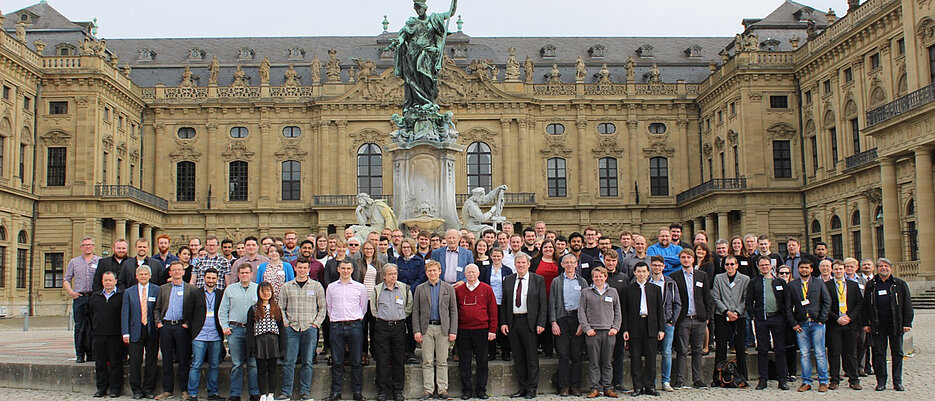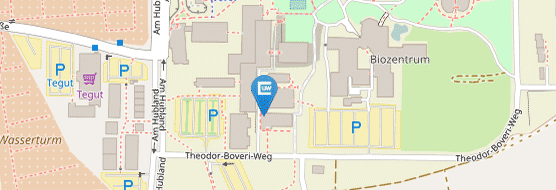2nd Joint German British Liquid Crystal Conference
18.01.2017Würzburg Hosts 119 British and German Liquid Crystal Researchers
British and German scientist met for the second time during three days for a joint conference of both national Liquid Crystal Societies BLCS and DFKG, in which all aspects of the modern, interdisciplinary research area “Liquid Crystals” from the life sciences over the materials research to theory has been discussed thoroughly. The project of the binational symposium, which has been established from the two national topical meetings, has been assessed as a value-added European collaboration, from which especially the rising generation of young liquid crystal researchers benefits. The international participants have been enthusiastic and inspired by the unique historical event location, the Tuscany Hall of the Residence, which Würzburg could offer to its guests.
You remember? Flüssigkristalle or in English „Liquid Crystals“ (LC) are materials which started their victorious conquest of the display technology approximately 60 years ago and are found today as LCDs for television, notebooks, PCs, smartphones etc. in almost every household. The combination of fluid (liquid) and anisotropic properties (crystal) in the so-called fourth state of matter, the liquid crystal (intermediate phase or mesophase), is of high importance also in nature – for example during the spinning process of silk or for the cell division (mitosis). Even during the production of high-tensile and light-weight polymers, such as Kevlar® or Vectra®, which are applied for bullet-proofed jackets or high-performance ropes for climbing, the liquid-crystalline state of matter plays a pivotal role.
From April the 3th-5th, 2017, 119 German and British scientists were meeting the second time jointly to present their newest results in liquid crystal research. Besides recent industrial developments, the topics comprised applied research related to LC lenses for ophthalmic optics, artificial muscles, plastic electronics (e.g. photovoltaics) or photonics. The majority of the 36 oral presentations and 54 posters were related to basic research from synthesis, over physicochemical properties to theoretical challenges of liquid crystals in the areas of nanoparticle conjugated hybrid LCs, lyotropic or chromonic mesophases, functional supermesogens, nematic and twist-bend nematic phases as well as LC meta materials.
For the first time, since 2015, the German Liquid Crystal Society (DFKG) awarded the Alfred Saupe Medal to two German liquid crystal researchers, namely Prof. Dr. Wolfgang Weissflog and Professor Dr. Gerhard Pelzl (both University of Halle) for their lifetime achievements.
The British Liquid Crystal Society (BLCS) awarded four prizes: The Georg W. Gray Medal to Professor John Lydon (University of Leeds) for his achievements in the area of chromonic LCs; the Sturgeon Lecture to Prof. Dr. Bertrand Donnio (Université de Strasbourg) – the most prominent holder of this lectureship is Ben Feringa one of the chemistry Nobelprize laureates 2016; the Hilsum Medal to Professor Dr. Nigel Mottram (University of Strathclyde) and the BLCS Young Scientist Award to Dr. Richard Mandle (University of York) and Dr. Daniel Corbett (University of Manchester).
The scientifically very successful conference was located in the Tuscany hall of the Residence. The foreign and domestic participants were enthusiastic about the historically rich and impressive conference location, said Professor Lehmann the chair of the conference. Professor Dr. Christoph Lambert, dean of the faculty of chemistry and pharmacy welcomed all participants of the conference, which were carried out last year in Edinburgh and this year in Würzburg as joint meeting of the german and british liquid crystal societies. Both societies emphasized the more than positive experience and the scientific valuable addition from both binational conferences, which were hold usually as national topical meetings. In the future these initiatives will be continued.



